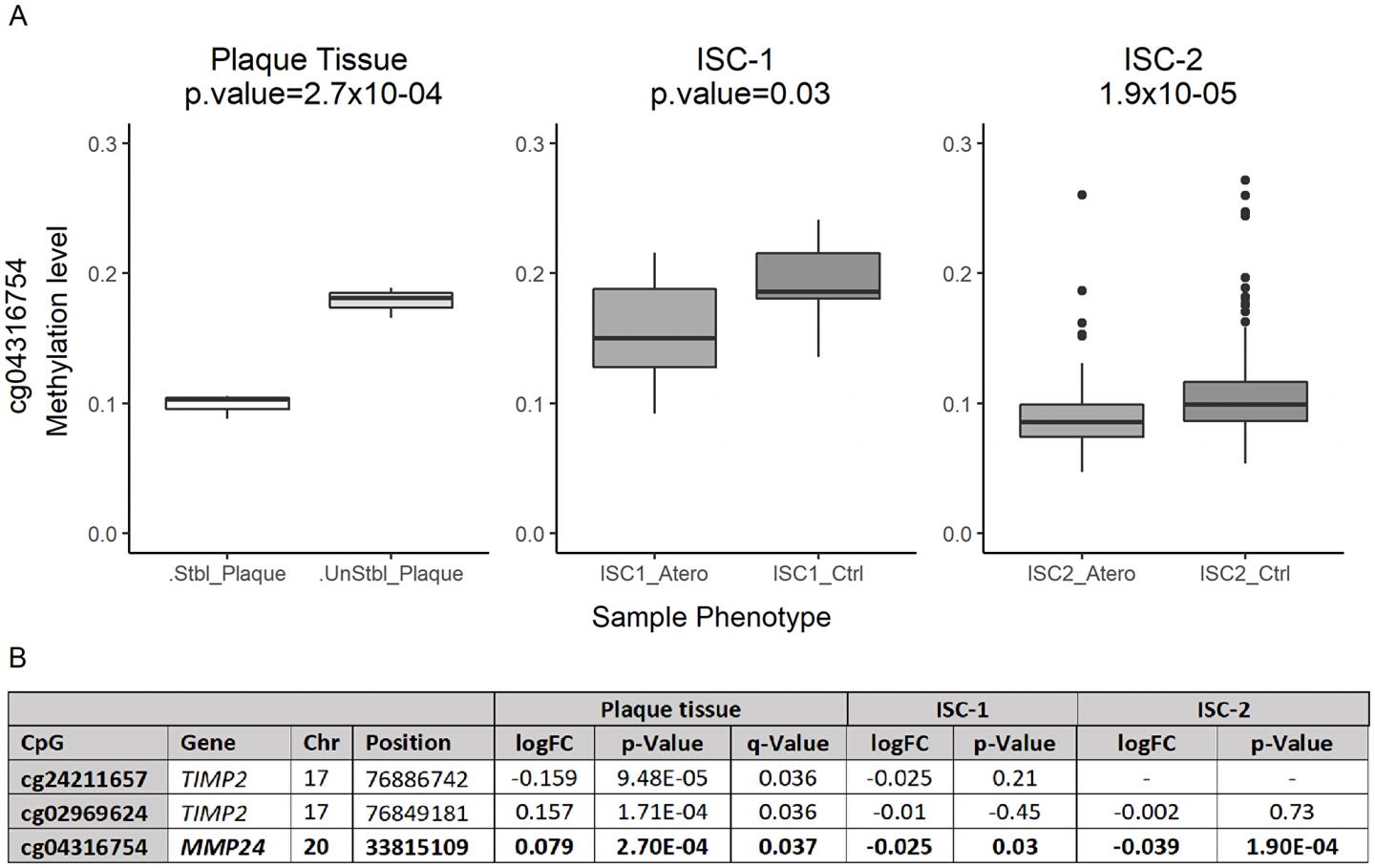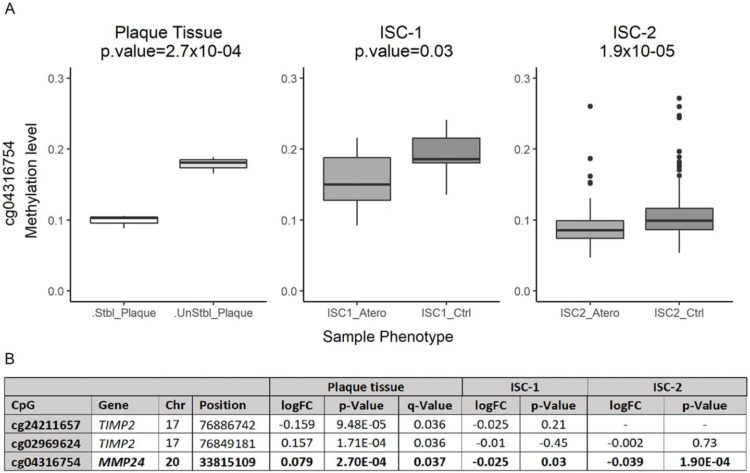Oncotarget Volume 11, Issue 10 reported that the statistically associated Cp G sites were analyzed in blood samples from two separate atherothrombotic stroke cohorts, ischemic stroke-cohort 1: 37 atherothrombotic patients and 6 controls, ischemic stroke-c

Credit: Correspondence to – Cristina Gallego-Fabrega – [email protected], Jerzy Krupinski – [email protected], and Israel Fernandez-Cadenas – [email protected]
Oncotarget Volume 11, Issue 10 reported that the statistically associated Cp G sites were analyzed in blood samples from two separate atherothrombotic stroke cohorts, ischemic stroke-cohort 1: 37 atherothrombotic patients and 6 controls, ischemic stroke-cohort 2: 80 atherothrombotic patients and 184 controls.
The results suggest different DNAm status of MMP24 between stable and unstable atherothrombotic carotid plaques, and between atherothrombotic stroke and controls in blood samples.
Dr. Israel Fernandez-Cadenas from Stroke Pharmacogenomics and Genetics, Sant Pau Research Institute, Barcelona, Spain, Dr. Jerzy Krupinski from the Neurology, Hospital Universitari Mútua de Terrassa/Fundacio Docència i Recerca MútuaTerrassa, Terrassa, Spain as well as the Centre for Biomedicine, Manchester Metropolitan University, Manchester, UK & Dr. Cristina Gallego-Fabrega also from the Neurology, Hospital Universitari Mútua de Terrassa/Fundacio Docència i Recerca MútuaTerrassa, Terrassa, Spain as well as the Stroke Pharmacogenomics and Genetics, Sant Pau Research Institute, Barcelona, Spain said, “Arteriosclerosis is the underlying pathology in most cases of cardiovascular disease (CVD), including ischemic stroke (IS), contributing to major mortality in Western countries.“
“Arteriosclerosis is the underlying pathology in most cases of cardiovascular disease (CVD), including ischemic stroke (IS), contributing to major mortality in Western countries”
– Dr. Israel Fernandez-Cadenas, Stroke Pharmacogenomics and Genetics, Sant Pau Research Institute & Dr. Jerzy Krupinski from the Neurology, Hospital Universitari Mútua de Terrassa/Fundacio Docència i Recerca MútuaTerrass and the Centre for Biomedicine, Manchester Metropolitan University & Dr. Cristina Gallego-Fabrega also from the Neurology, Hospital Universitari Mútua de Terrassa/Fundacio Docència i Recerca MútuaTerrassa and the Stroke Pharmacogenomics and Genetics, Sant Pau Research Institute
MMPs and TIMPs have raised considerable interest within atherosclerosis and IS research community, as they represent an attractive target for the use of current drugs and the development of novel ones, aimed at blocking MMP activity.
Some studies have observed associations between protein plasma levels of MMPs, TIMPs, atheromatous plaque instability, stroke progression.
Here, the authors present a characterization of DNAm status of the MMP and TIMP gene families in donor-matched stable and ulcerated carotid artery atherosclerotic plaques and whole blood in atherothrombotic stroke patients and controls.
The Fernandez-Cadenas/Krupinski/Gallego-Fabrega Research Team concluded, in their Oncotarget Research Article, “we characterized MMPs and TIMPs DNAm patterns in atheromatous plaque, which led us to observe significant differences between stable and ulcerated portions in plaque tissue for MMP24 and TIMP2. Differences in MMP24 were also observed in blood samples between atherothrombotic stroke patients and healthy controls. The generalized hypermethylation found in ulcerated portions and samples from healthy controls is in line with other methylation studies. Functional analysis of the implications of methylation levels changes in MMP24 and TIMP2 have in their expression levels are needed to link this finding with the biopathology of plaque destabilization. Studies with larger sample size, to confirm our results.“
###
Sign up for free Altmetric alerts about this article
DOI – https:/
Full text – http://www.
Correspondence to – Cristina Gallego-Fabrega – [email protected], Jerzy Krupinski – [email protected], and Israel Fernandez-Cadenas – [email protected]
Keywords –
pancreatic cancer,
miRNA,
non-coding RNA,
prognostic biomarker,
local-regional recurrence
About Oncotarget
Oncotarget is a weekly, peer-reviewed, open access biomedical journal covering research on all aspects of oncology.
To learn more about Oncotarget, please visit http://www.
SoundCloud – https:/
Facebook – https:/
Twitter – https:/
LinkedIn – https:/
Pinterest – https:/
Reddit – https:/
Oncotarget is published by Impact Journals, LLC please visit http://www.
Media Contact
[email protected]
18009220957×105
Media Contact
RYAN JAMES JESSUP
[email protected]
800-922-0957
Original Source
http://www.
Related Journal Article
http://dx.





